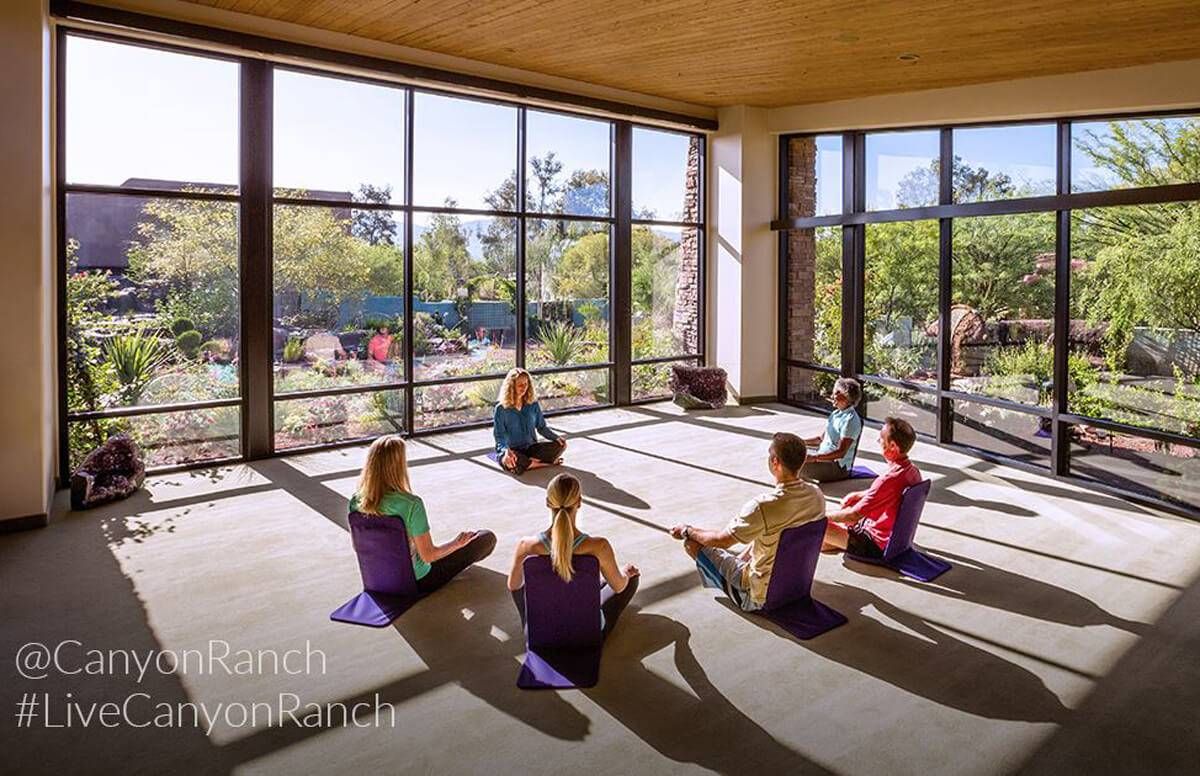A Look at Luxury Resorts That Now Offer Brain Health Programs
What this writer experienced during a week at one of the resorts
Like any self-disrespecting woman, I've spent a lifetime of mirror scrutiny (and cash) on my thighs, hips, heart, back, post-baby belly, even my eyebrows. For all this investment, I've paid scant attention to the one irreplaceable body part that keeps everything else running: my brain.

Why not learn how to show it some love, then, in the nicest possible way — by taking it on a brain vacation?
Gray matter is the latest twist in the red-hot wellness tourism category, which is growing by 7.5% a year, according to the Global Wellness Institute. Exhibit A: The new LifeWorks Health and Neuroscience near Bozeman, Mont., the country's first luxury retreat to focus exclusively on brain health.
Neither medical clinic nor classic resort, this innovative hybrid teaches how to lower your brain’s risk factors while amping up protective factors. Last summer, I was among its first guests because I’m one of the many people who worries about the fact that 1 in 10 Americans age 65 and older has Alzheimer's disease. And from age 65, the risk doubles every five years.
Those with a family history including Alzheimer’s, like me, have extra reason to worry. Far more of us will experience lapses in memory, focus, creative thinking and other cognitive functions.
The inspiring news: Many such brain changes increasingly look avoidable — not the inevitable sidekicks of aging. “It’s possible to alter 70% of your genetic destiny by changing nongenetic factors, with the decisions you make. That’s the new field called epigenetics,” says Dr. Richard Carmona, the 17th U.S. Surgeon General.
Time to Focus on Your Brain
The first program for brain-curious travelers was launched in 2014 at pioneering wellness retreat Canyon Ranch in Tucson, Ariz., where Carmona is chief of health innovation. During its weeklong Boost Your Brain Power program, guests hear science-backed presentations by physicians and researchers on dementia, exercise physiology, mindfulness and more. They also participate in life coaching, social programming, meditation, exercise classes and optional health assessments like cognitive testing and nutritional evaluations.
“It's now one of the most thriving programs we have," Carmona says. Participants (who range from age 30 to 90, with most in their 50s) are given his book, 30 Days to a Better Brain, which inspires the week. The new Canyon Ranch Wellness Retreat – Woodside, in California, will offer a similar program when it opens this summer.
Other health resorts are dipping loosely into the brain spa category. One example is the Lodge at Woodloch in Pennsylvania's Poconos, where spa concierges will build a Mind Matters Wellness Experience from existing classes.
Miraval Arizona Resort & Spa in Tucson presents 90-minute talks called “Optimize Your Brain.” And Brazil’s Kurotel (which focuses on longevity and prevention) targets memory concerns in an intensive week.
Many of these resorts also tout the brain benefits of mindfulness practice and sleep therapy.
My Brain Spa Experience
I decided to try the program at LifeWorks in Montana. "We're unapologetically all about the brain," says neuropsychologist Robert Velin, its chief scientific officer. "Not just telling you what to do, but showing you how."
After a week there, I have to say that brain fitness feels less like boot camp than summer camp at this unlikely frontier of the exploding brain-wellness and dementia-prevention movements.
One day included: a walking meeting with a life adviser to talk stress; a one-on-one meeting with a trainer; some basic cognitive testing and a session of neurofeedback, which is biofeedback for the brain using real-time displays of brain activity to teach it to promote neuron growth.
During evening group “fireside chats” — yup, at a massive stone hearth — Velin explained concepts like “neuroplasticity” and the field of epigenetics.
To boost focus, I learned mindfulness practices like yoga nidra, whose delightful nickname "sleep yoga" suggests how sweaty it isn't.
Another “wakeful meditation” practice I brought home: the five-senses exercise. Sit still and notice five things you can see, then four things you can feel, three things you can hear, two things you can smell and one you can taste. Simple but effective, even after I’m not sitting on a deck with a view of prairie dogs and the Crazies (as in mountains).
“We want to pull all the parts of our existence — physical, spiritual, social, psychological — to support the organ that ultimately manages and allows us to perceive everything we are,” Velin says.
At communal meals, I joined stressed executives and an ex-NFL linebacker learning how to eat happily sans gluten, beef, dairy, eggs and sugar. (Amen to the five-ounce red wine pour at dinner, the limit deemed brain-safe.)
While LifeWorks stresses that not everyone needs to go so far with their diet, the goal is to show how LifeWorks’ version of optimal, the enhanced MIND Diet, can also be delicious. LifeWorks employs deft Executive Chef Peg Schaefer, an integrative nutritionist who used to cook for Ted Turner. Who knew vegan waffles and zoodles (made from zucchini) alfredo could be so yum? At least her recipes go home with the guests.
LifeWorks is located in the panoramic Shields Valley, so outdoor sports are among its “7 pillars of brain health” that guests learn — thank “neurobiophilia,” the term for how nature stimulates neural networks.
Practices Rooted in Science
It seems like so much wishful thinking that relatively pleasant lifestyle shifts could dramatically lower my risk of developing a condition that caused my dad and four other relatives to evaporate before my very eyes. But everything at LifeWorks, down to the decorative plants (chosen to remove environmental toxins), has roots in the fast-moving research world.
“We translate complex science and deliver it to the guest in ways that help the lightbulb go off, to help affect sustained behavior change,” says Canyon Ranch’s Carmona. “If you’re a CPA who’s well-educated but doesn’t know a gene from an anthill, you’ll see that the decisions you make every day, those epigenetic inputs, can be reprogrammed.”
But what happens after the Arizona desert or Montana mountains are mere memories? How do you turn these practices into habits?
These resorts have plans for that as well. Canyon Ranch guests get a last-day workshop on integrating changes into real life, plus free follow-up calls with a life coach. (Key words: baby steps!) LifeWorks provides a take-home guide and a cookbook.
Brain Health in Paradise Ain’t Cheap
Although anyone can learn brain-health basics at home, doing so with professional support while on vacation costs, well, big vacation bucks. 10-room Lifeworks runs $5,000 for four nights of all-inclusive meals and activities. Canyon Ranch’s “Boost Your Brain” program costs $500, and that’s above its standard tab of $1,099 per person per night — also all-inclusive.
Maybe it’s best to think of this as a brain investment as well as a holiday. What’s the price of a brain that works better, longer?
It’s certainly one heck of a souvenir.

Read More

